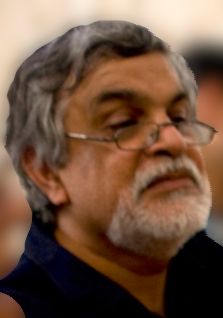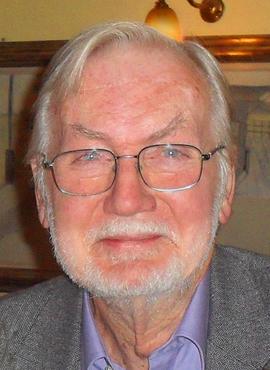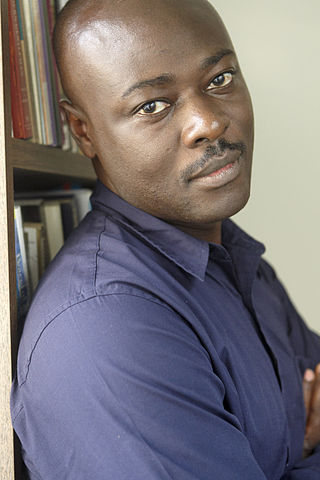Rohinton Mistry is an Indian-born Canadian writer. He has been the recipient of many awards including the Neustadt International Prize for Literature in 2012. Each of his first three novels was shortlisted for the Booker Prize. His novels to date have been set in India, told from the perspective of Parsis, and explore themes of family life, poverty, discrimination, and the corrupting influence of society.
Canadian literature is written in several languages including English, French, and to some degree various Indigenous languages. It is often divided into French- and English-language literatures, which are rooted in the literary traditions of France and Britain, respectively. The earliest Canadian narratives were of travel and exploration.

Ama Ata Aidoo was a Ghanaian author, poet, playwright, politician, and academic. She was Secretary for Education in Ghana from 1982 to 1983 under Jerry Rawlings's PNDC administration. Her first play, The Dilemma of a Ghost, was published in 1965, making Aidoo the first published female African dramatist. As a novelist, she won the Commonwealth Writers' Prize in 1992 with the novel Changes. In 2000, she established the Mbaasem Foundation in Accra to promote and support the work of African women writers.

Moyez G. Vassanji is a Canadian novelist and editor, who writes under the name M. G. Vassanji. Vassanji's work has been translated into several languages. As of 2020, he has published nine novels, as well as two short-fiction collections and two nonfiction books. Vassanji's writings often focus on issues of colonial history, migration, diaspora, citizenship, gender and ethnicity.

Richard Miller Flanagan is an Australian writer, who has also worked as a film director and screenwriter. He won the 2014 Man Booker Prize for his novel The Narrow Road to the Deep North and the 2024 Baillie Gifford Prize for Question 7, making him the first writer in history to win both Britain's major fiction and non-fiction prizes.

Wayne Johnston is a Canadian novelist. His fiction deals primarily with the province of Newfoundland and Labrador, often in a historical setting. In 2011 Johnston was awarded the Writers' Trust Engel/Findley Award in recognition of his overall contribution to Canadian Literature.

Barry Unsworth FRSL was an English writer known for his historical fiction. He published 17 novels, and was shortlisted for the Booker Prize three times, winning once for the 1992 novel Sacred Hunger.

Ann Patchett is an American author. She received the 2002 PEN/Faulkner Award and the Orange Prize for Fiction in the same year, for her novel Bel Canto. Patchett's other novels include The Patron Saint of Liars (1992), Taft (1994), The Magician's Assistant (1997), Run (2007), State of Wonder (2011), Commonwealth (2016), The Dutch House (2019), and Tom Lake (2023). The Dutch House was a finalist for the 2020 Pulitzer Prize for Fiction.

Caryl Phillips is a Kittitian-British novelist, playwright and essayist. Best known for his novels, Phillips is often described as a Black Atlantic writer, since much of his fictional output is defined by its interest in, and searching exploration of, the experiences of peoples of the African diaspora in England, the Caribbean and the United States. As well as writing, Phillips has worked as an academic at numerous institutions including Amherst College, Barnard College, and Yale University, where he has held the position of Professor of English since 2005.
Vikram Chandra is an Indian-American writer. His first novel, Red Earth and Pouring Rain, won the 1996 Commonwealth Writers' Prize for Best First Book.
Susan Minot is an American novelist, short story writer, poet, playwright, screenwriter and painter.
Lawrence Scott FRSL is a novelist and short-story writer from Trinidad and Tobago, who divides his time between London and Port of Spain. He has also worked as a teacher of English and Drama at schools in London and in Trinidad. Scott's novels have been awarded (1998) and shortlisted for the Commonwealth Writers' Prize and thrice nominated for the International Dublin Literary Award. His stories have been much anthologised and he won the Tom-Gallon Short-Story Award in 1986.

Adam Haslett is an American fiction writer and journalist. His debut short story collection, You Are Not a Stranger Here, and his second novel, Imagine Me Gone, were both finalists for both the Pulitzer Prize and the National Book Award. He has been awarded fellowships from the Guggenheim Foundation, the American Academy of Arts and Letters, and the American Academy in Berlin. In 2017, he won the Los Angeles Times Book Prize.

Hugh Swynnerton Thomas, Baron Thomas of Swynnerton was an English historian and writer, best known for his book The Spanish Civil War.

Helon Habila Ngalabak is a Nigerian novelist and poet, whose writing has won many prizes, including the Caine Prize in 2001. He worked as a lecturer and journalist in Nigeria before moving in 2002 to England, where he was a Chevening Scholar at the University of East Anglia, and now teaches creative writing at George Mason University, Fairfax, Virginia.
Rabindranath Maharaj is a Trinidadian-Canadian novelist, short story writer, and a founding editor of the Canadian literary journal Lichen. His novel The Amazing Absorbing Boy won the 2010 Trillium Book Award and the 2011 Toronto Book Award, and several of his books have been shortlisted for the Rogers Writers' Trust Fiction Prize, the Commonwealth Writers' Prize, and the Chapters/Books in Canada First Novel Award.
Maria Joan Hyland is an ex-lawyer and the author of three novels: How the Light Gets In (2004), Carry Me Down (2006) and This is How (2009). Hyland is a lecturer in creative writing in the Centre for New Writing at the University of Manchester. Carry Me Down (2006) was shortlisted for the Man Booker Prize and won the Hawthornden Prize and the Encore Prize.

Yaba Badoe is a Ghanaian-British documentary filmmaker, journalist and author.
Lucy Safo is a Ghanaian writer.

Konadu Yaadom, also Kwadu Yaadom was the fourth Asantehemaa of the Ashanti Empire, whose multiple marriages and spiritual influence meant that she became an important and powerful ruler in the eighteenth and early nineteenth centuries.












